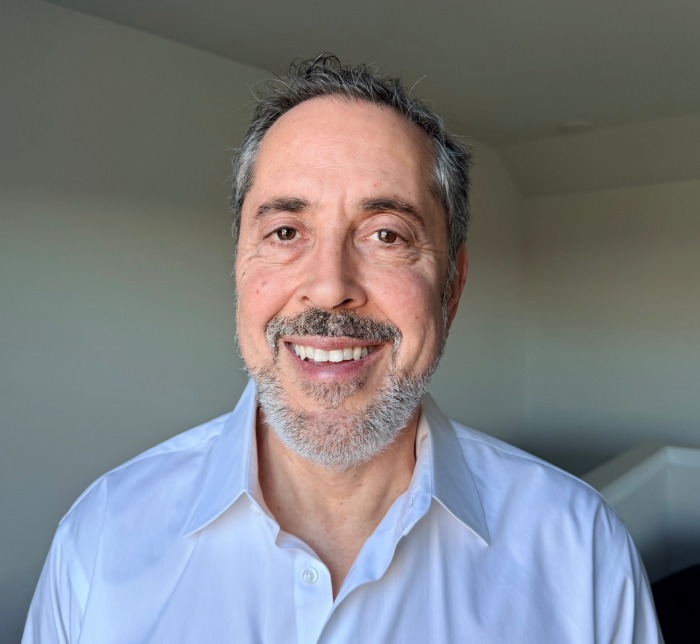The Tipping Point: Integrative Health as the Standard of Care
By Glenn Sabin

The second decade of the 21st century will be recognized as the tipping point beyond which integrative health and medicine became the standard of care in the United States.
The inexorable momentum achieved during the last five years has propelled the movement to the gates of conventional care. The gates have opened. Integrative health and medicine have walked right in and taken their rightful place.
The adoption of a multitude of wellness-related practices, which evidence the profound impact of behavior modification combined with whole-person care, is fully underway—comprising whole foods nutrition, physical activity, stress reduction, and restorative sleep.
The literature base continues to grow. The clinical, preventive, and economic value of evidence-based integrative health approaches is, at this point, rock-solid. With this irrefutable proof we’re set to move forward with sustained application.
What Success Looks Like
1. Ongoing public demand driving continuous growth of integrative health and medicine providers and integrative oncology providers (academic centers, hospital and health systems, and private clinics).
2. Steady expansion of medical school and health systems—members of the Academic Consortium for Integrative Medicine and Health—to more than 60.
3. Recent launch of the Academy for Integrative Health and Medicine and the organization’s new multi-discipline fellowship.
4. Continued impact of the Fellowship in Integrative Medicine at the Arizona Center for Integrative Medicine, and a multitude of approved fellowships now recognized by the American Board of Physician Specialties.
5. Concerted advocacy for implementation of Section 2706, the provider non-discrimination clause in the ACA, guided state-by-state, in coordination with IHPC’s CoverMyCare project.
6. Robust national uptake of Dr. Dean Ornish’s Program for Reversing Heart Disease, with partner Healthways, by hospitals and health systems across the country (after its 2010 approval by Medicare and Medicaid).
7. The growing, natural connection between integrative health approaches and patient-centered medical homes, accountable care organizations, group clinic visits, value-based care, and The Triple Aim.
8. Steady, emerging data supporting the cost-effectiveness of integrative medicine across provider disciplines.
9. Scientist Youyou Tu wins 2015 Nobel Prize in Physiology or Medicine for her work in Traditional Chinese Medicine including the discovery of artemisinin, a derivative of the sweet wormwood plant as effective in treatment of malaria. She won the Lasker Award four years earlier regarding similar work.
10. Worldwide growth of integrative health and medicine conferences and workshops; many offering CME credits.
Additional Seismic Shifts Aligning with Integrative Health Movement
The American Medical Association has recently voted to support the removal of direct-to-consumer pharmaceutical advertising in the U.S.
Major food manufacturers and restaurants are starting to remove nutritionally questionable ingredients from their long-time ‘mass-seller’ recipes.
Enjoying this article? Subscribe and get our latest, delivered straight to your inbox.
Public demand and pressure has led to reduced or discontinued use of antibiotics and growth hormones on livestock.
The FDA has announced the launch of the Office of Dietary Supplements due to exponential industry growth and increasing need to weed out bad actors marketing inferior and sometimes dangerous products.
Under the concept “integrative pain management”, acupuncture, chiropractic, and massage therapy are increasingly recommended by national and state medical standards bodies to balance opioid-based pain management.
Could the government’s reevaluation of subsidies to soy and corn (sugar) growers be far off?
Prescient Timing
It’s been long known that the most costly and devastating chronic diseases are largely due to unhealthy lifestyle choices. We also know that behavior modification addressing root causes, is often more effective than today’s still too prevalent prescription-drug-based disease-management model.
The recent news that up to 90% of malignant diseases may be preventable with lifestyle and environmental change is stunning.
Sadly, less than five percent of the National Cancer Institute’s budget currently goes toward true prevention measures; in 2014 the National Institutes of Health spent 4.6% of its $148 billion budget on prevention. This enormous research, educational, and clinical void fits squarely into the wheelhouse of integrative, functional, and lifestyle medicine.
However, we now have good data to evaluate the cost-savings possible. The opportunity and role for integrative medicine is enormous—as a powerful set of pliers ready to bend the cost curve and keep the country solvent.
What Must Come Next: Community Unity
The integrative health and medicine community—one camp now bursting with an expanding collection of many eclectic tents—is increasingly credible as a result of the collaborative achievements outlined above. Its complexion is changing due to the steady increase of professionals, from conventional fields, who are adopting the ethos and engaging in the practice of whole-person integrative health and medicine.
As these trends suggest, it is time to take full advantage of this integration and to ensure that the community is joined at the hip with other healthcare professions in conversations on healthcare transformation, wherever they are convened. The many-faceted collaborations around understanding, managing, and resolving pain are a powerful model to inform this process.
Over time the abundance of wellness concepts will have a progressive and lasting impact on the human condition. It will be up to the community to tell the stories that its patients have been carrying across the tipping point during the last decade: a powerful narrative in service to health creation, healing, and to true disease prevention. This chronicle is essential to fulfilling the potential for making the standard of care truly integrative.
About FON
FON is a leading integrative health and medicine business development and strategy consulting firm. FON specializes in custom solutions for growing patient volume, developing programs, and increasing product sales. Our practical business models are driven by innovative marketing, clear messaging, and customer engagement via branded storytelling.
Contact us today to schedule a complimentary 30-minute consultation to discuss your business development or personal brand needs.

Glenn Sabin, founder of FON and author of n of 1, is a nationally recognized thought leader who positions health innovators, enterprises, and organizations for sustainable growth. Leveraging deep experience in media, strategy, marketing, and business development—and his own compelling cancer journey—he champions personalized medicine and the generation of real-world data and evidence to help define a new, accessible standard of care.
Read Glenn’s story.




















